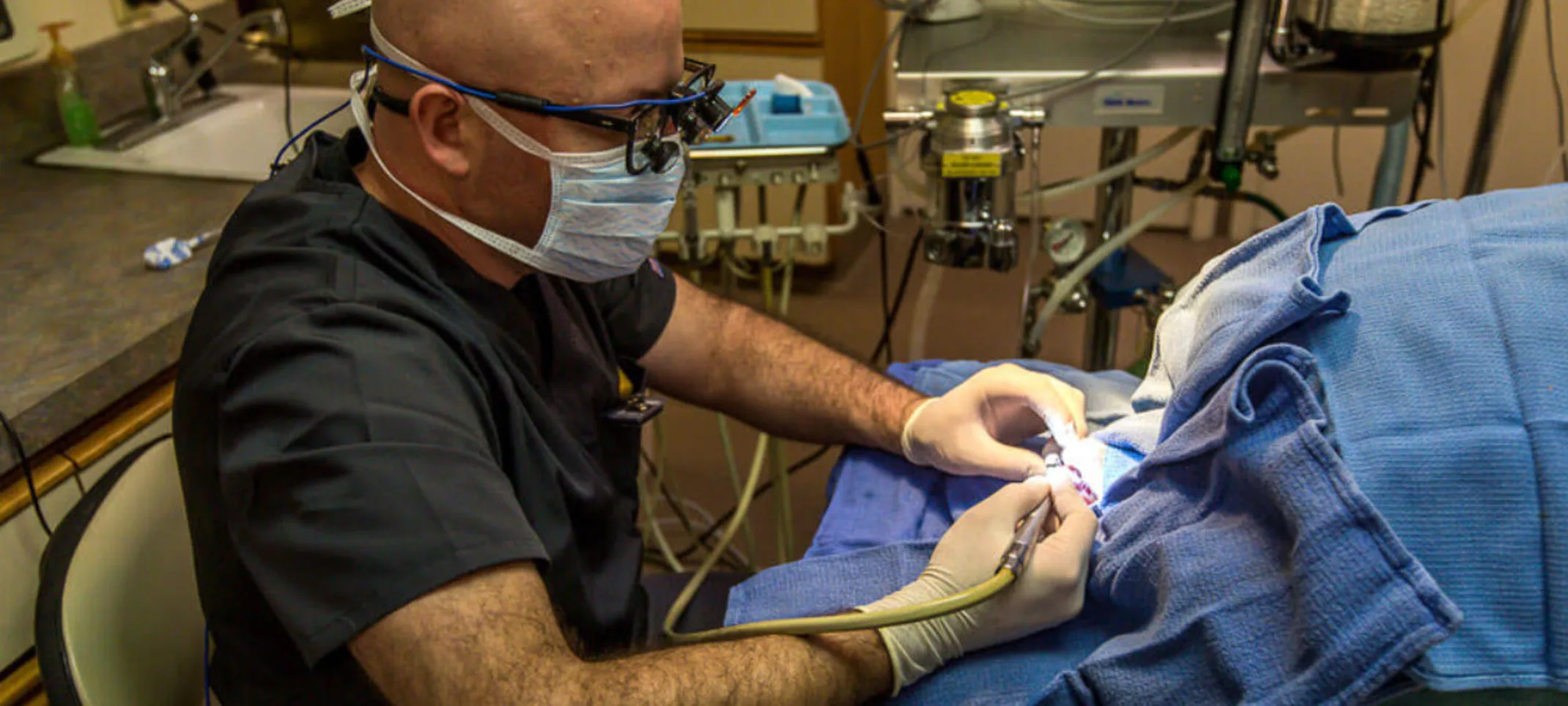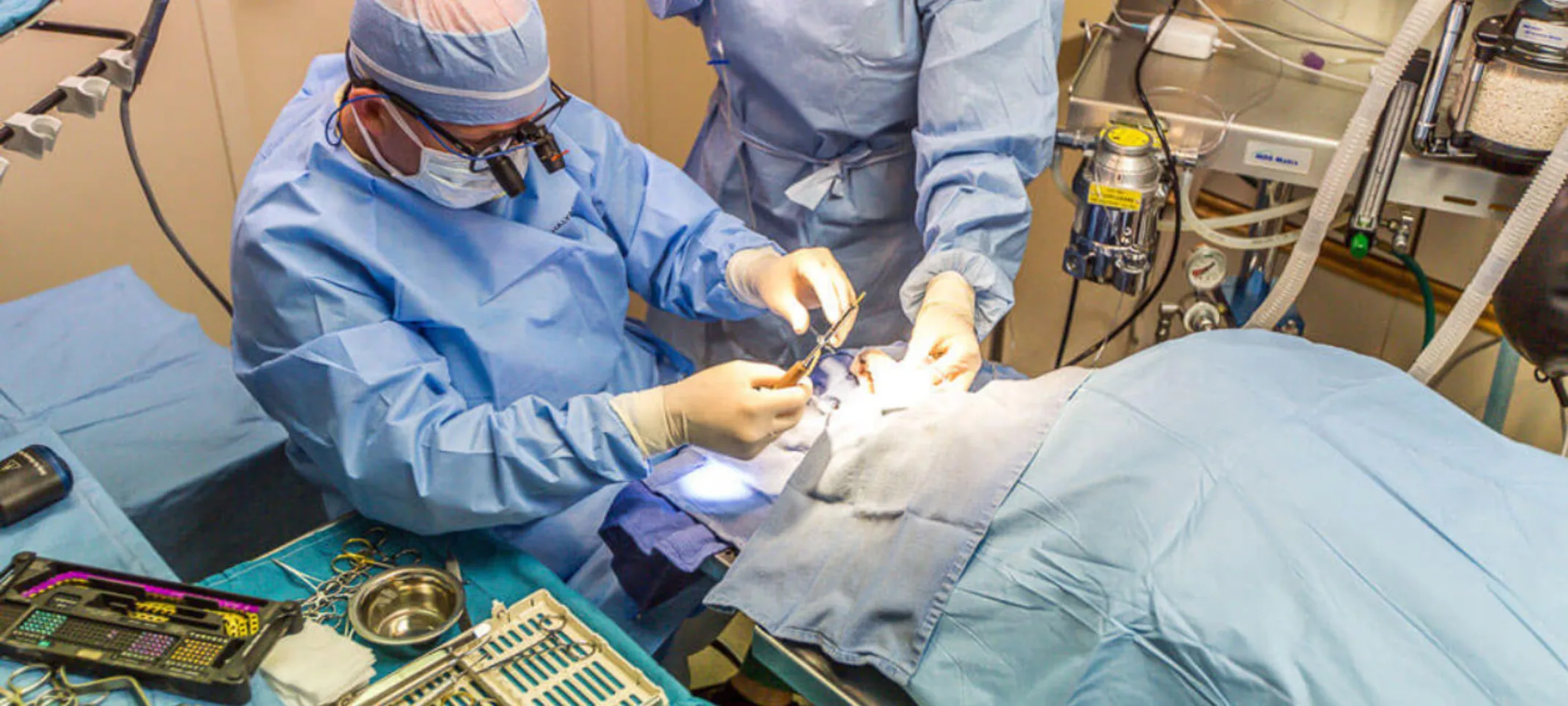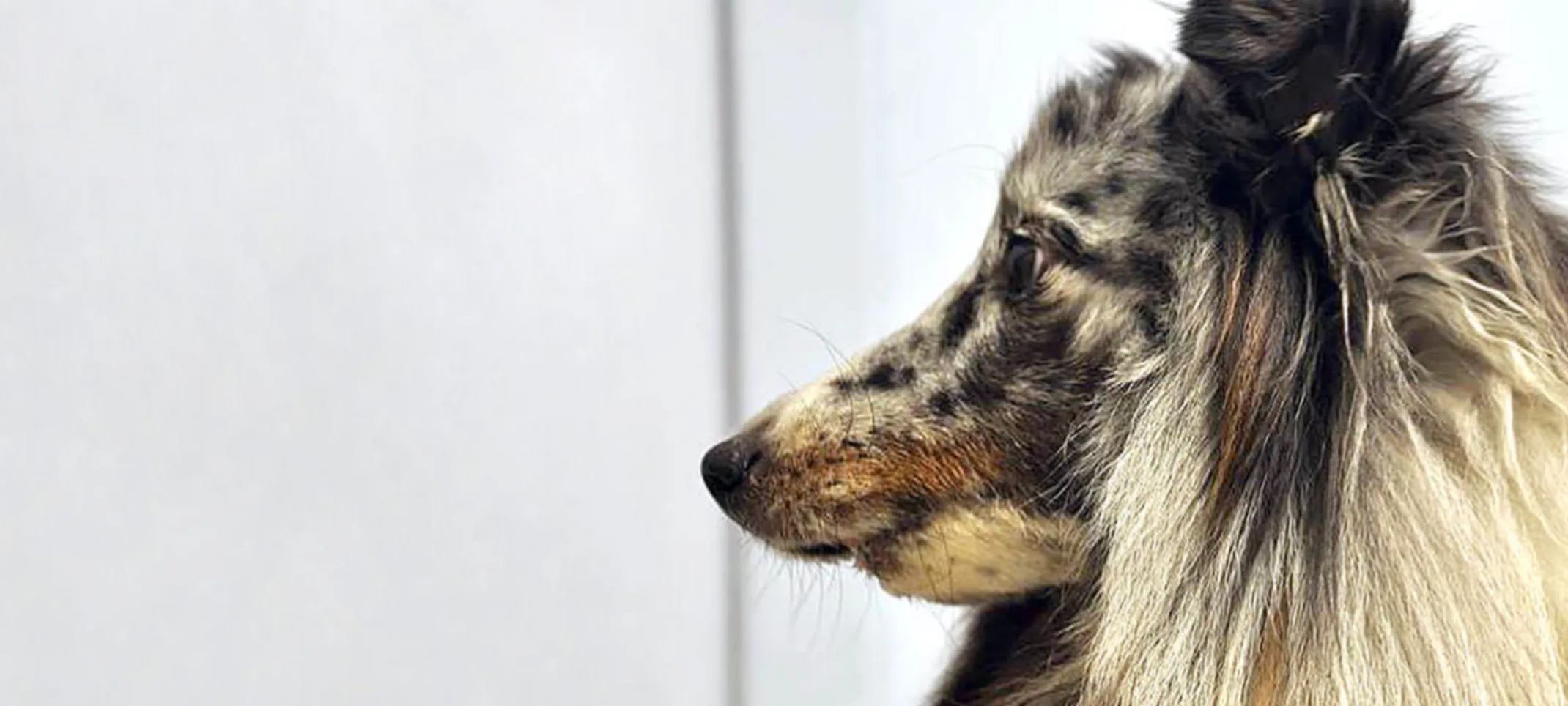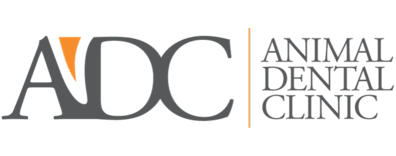Animal Dental Clinic
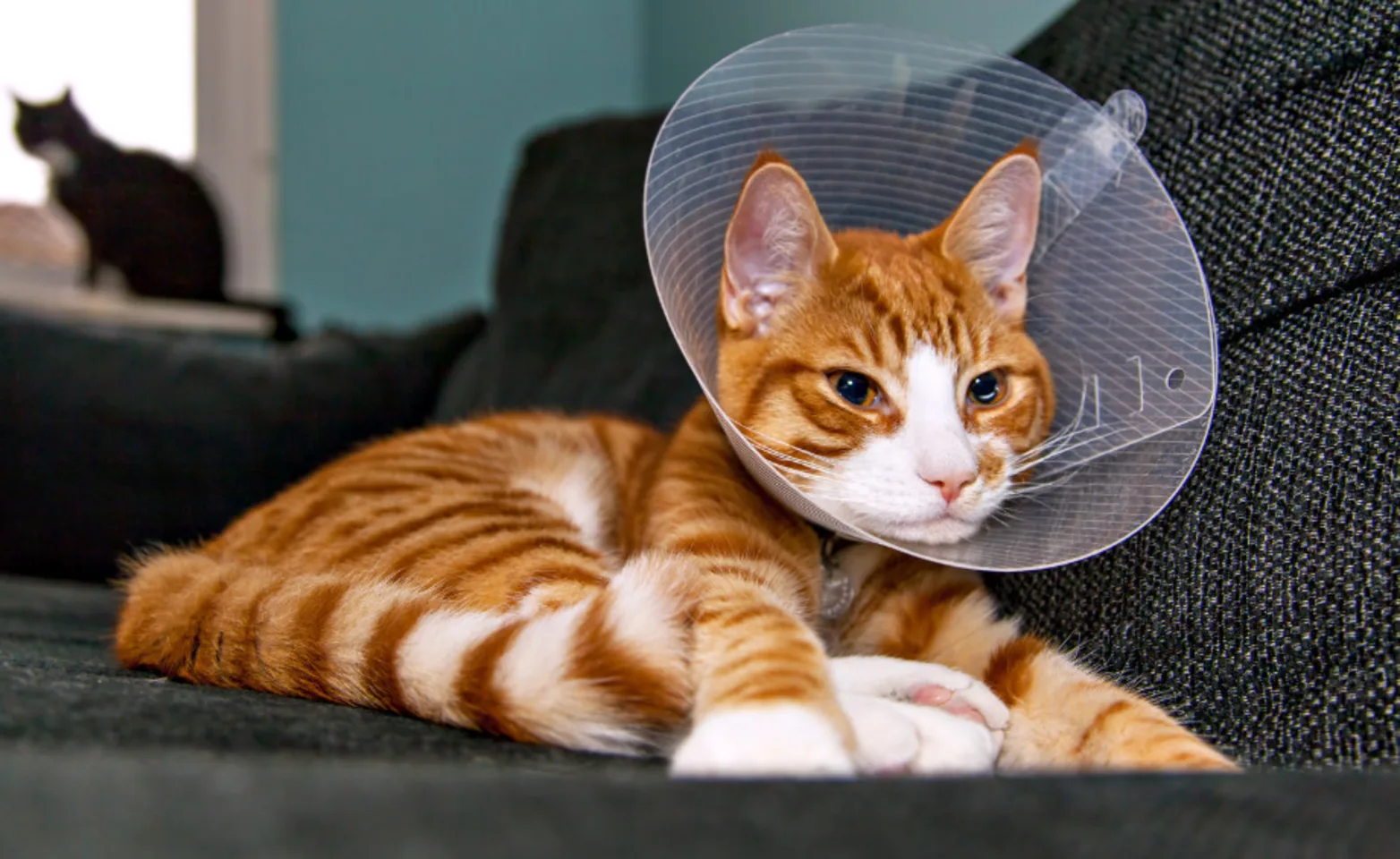
Our surgical procedures save teeth, relieve pain and save lives.
There are many reasons an animal may need oral surgery. Large tumors and major maxillofacial trauma require surgical intervention and/or maxillofacial reconstruction for obvious reasons, but not all oral surgery is dramatic. Some pets need to undergo oral surgical procedures to remove plaque and calculus from tooth roots, extract unsalvageable teeth, or to save teeth by promoting periodontal tissue regeneration.
Surgery Overview
Periodontal Surgery
Performing periodontal surgery allows us to improve our patient’s quality of life.
Periodontal surgery happens every day at Animal Dental Clinic. These procedures allow access to treat periodontal disease and perform reconstruction of damaged tissues.
Occasionally, extracting affected teeth is the only way that a patient’s mouth can be restored to a pain-free and normally-functioning state; this happens with end-stage periodontitis. Even something as routine-sounding as tooth extraction is a surgical procedure, as it entails safely removing the tooth and infected tissue, followed by surgical closure to deny food and bacteria access to the extraction site.
In cases where a long-term prognosis is favorable, teeth with periodontitis can benefit from advanced periodontal surgery such as guided tissue regeneration.
In some patients with a combination of endodontic and periodontal disease, performing a periodontal surgical procedure may allow a damaged tooth to benefit from root canal therapy, rather than requiring extraction.
Regardless of the type of surgical procedure, every patient at Animal Dental Clinic is treated to achieve a functional and comfortable oral cavity.
Trauma Reconstruction
Being meticulous for good reasons.
Head trauma can be caused by a bite wound, a car accident, running into an object, a blunt or penetrating object, projectiles, falling from heights, and other scenarios, and can cause significant damage to the jaws and teeth. Such damage is associated with pain, usually proportional to the severity and extent of the injury and trauma, but longer-term considerations include the patient’s overall well-being. This damage is not only acutely painful but often interferes with occlusion and oral function. When an injury interferes with either, the teeth can cause ongoing trauma to the soft tissues of the oral cavity, and the animal may not be able to use its mouth very well. This loss of function translates to changes in the animals’ quality of life, particularly the ability to eat, groom, and defend themselves.
Prior to proceeding with surgery to address oral and/or maxillofacial trauma, it is also important that the patient be assessed for injuries to the spine, chest, abdomen, and other parts of the body.
Immediately after trauma, the priority is to address oral bleeding and pain. In most cases, surgical repair and reconstruction of oral and maxillofacial injuries can wait until the patient is stabilized and considered to be at lower risk of anesthetic complications.
In patients who have experienced oral or maxillofacial trauma patients, a veterinarian who specializes in dentistry and oral and maxillofacial surgery expertise will carefully evaluate and generate a customized, tailored surgical plan to address short- and long-term concerns such as preservation or restoration of normal occlusion, stabilizing fractures, repair of damaged soft tissues, and preservation of nerves and blood supply. As with any of our patients, the goal will be to return the patient’s oral cavity to a functional and pain-free oral cavity. A minimally invasive approach and special considerations for the aesthetic outcome is applied whenever possible.
Animal Dental Clinic provides a wide variety of oral and maxillofacial surgery services for trauma patients, including reconstructive surgery, soft tissue laceration repairs, stabilization of avulsed teeth, maxillo-mandibular fracture repair, oral tumor removal, and many others.
Consideration extends to long-term recovery as well, and healing requires appropriate nutrition. When a patient is expected to have difficulty eating, healing requires the placement of a temporary feeding tube to ensure that patients receive adequate nutrition. Our in-house veterinary nutrition specialist is available to recommend and/or customize the appropriate diet to meet a specific pet’s needs during recovery.
Tumor Removal & Reconstruction
Special consideration is needed for such special circumstances.
Animals are experts at hiding pain and dysfunction, so it’s fairly frequent that oral tumors are present and growing for some time before diagnosis. Once an oral tumor has been discovered, making a plan to address it as soon as possible is advisable.
Because an oral examination is not sufficient to determine if a tumor is benign or malignant, a carefully-performed biopsy is usually required. The veterinary pathologist’s assessment of the tumor type and expected biological behavior is crucial for the development of a plan.
The treatment plan is based on biopsy results, imaging (usually dental radiographs, but possibly also advanced imaging), and other factors related to the animal’s overall well-being.
Whenever possible, the best course of action for most tumors is to remove them completely, which improves prognosis. Approaching tumors with this plan is referred to as “curative intent.”
In many cases, removing a tumor requires various degrees of reconstructive surgery, from simple to complex, to improve oral function and aesthetic outcomes.
